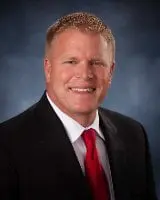 | 1.5 LU |
 | 1.5 LU |
In this workshop a panel of educators will share on various current education topics and practices related to education leadership, teaching, and learning.
To lead meaningful educational visioning efforts and elevate their interactions with schools and districts, learning environment planners need to be knowledgeable about and stay current with educational theory and practice.
Following the panel discussion, participants will engage in a workshop identifying ways to integrate what they’ve learned into their educational visioning and ultimately into the planning and design of learning environments.
Attendees will walk away with a better understanding of educational practice and theory, elevating their future interactions with schools and districts.
Learning Objectives:

Nandita is a Market Sector Leader at Wightman & Associates, focusing on educational planning, design, and project management of K-12 educational facilities. She is a thought leader in the field of K-12 facility planning and a certified educational planner with A4LE, where she is a past Chapter President. Nandita is also involved with the AIA Committee on Architecture for Education. Her work is supported by her teaching background.

Dr. Schuler became superintendent of Community Unit School District 200 in September 2014. Before joining District 200, Jeff served as the superintendent of schools in Kaneland 302. Prior to becoming superintendent in Kaneland, he served as their district’s assistant superintendent. He has served as adjunct faculty at Loyola University, Aurora University and Northern Illinois University. Jeff began his career in education as a teacher of gifted students at Joyce Kilmer Elementary School in District 21 in Wheeling, IL. He has also taught at the middle school level and served as a middle school principal in Northbrook School District 27. He has served as a speaker and columnist for various conferences and publications.

Kari is a School Psychologist and Educator with 25 years of experience. She is a trainer of safety care, restorative practices and conflict mediation. She oversees programming and operations of behavioral programming and mental health support. In addition, she provides grief/crisis counseling to students and oversees a number of other grants and programs directly related to her specializations.
This track addresses the Response to real-world events and experiences that impact our daily life and our ability to function normally and be productive. The response to these occurrences is reflected in the learning environments we create and leads to the question – how can schools respond to real-world crises in a way that supports the well-being of occupants and our students' learning journey? How do we respond with approaches and strategies that may be used to balance the inability and lack of needed financial resources to address deficiencies within our learning environments’ infrastructure? Topics expand on the Art approach to the theme, but also include Science in the form of findings and outcomes through case studies and examples of successful responses to real-world conditions and events such as the COVID-19 pandemic, climate change, declining student enrollment, economics, equity, and other topics.
Primary Core Competency
Educational Visioning: Exhibits an understanding of best and next practices related to educational leadership, programming, teaching, learning, planning and facility design. Establishes credibility with educators, community members and design professionals while conceiving and leading a community-based visioning process. Demonstrates the ability to articulate the impact of learning environments on teaching and learning and uses that ability to facilitate a dialogue that uncovers the unique needs and long-range goals of an educational institution and its stakeholders – translating that into an actionable written/graphic program of requirements for the design practitioner.